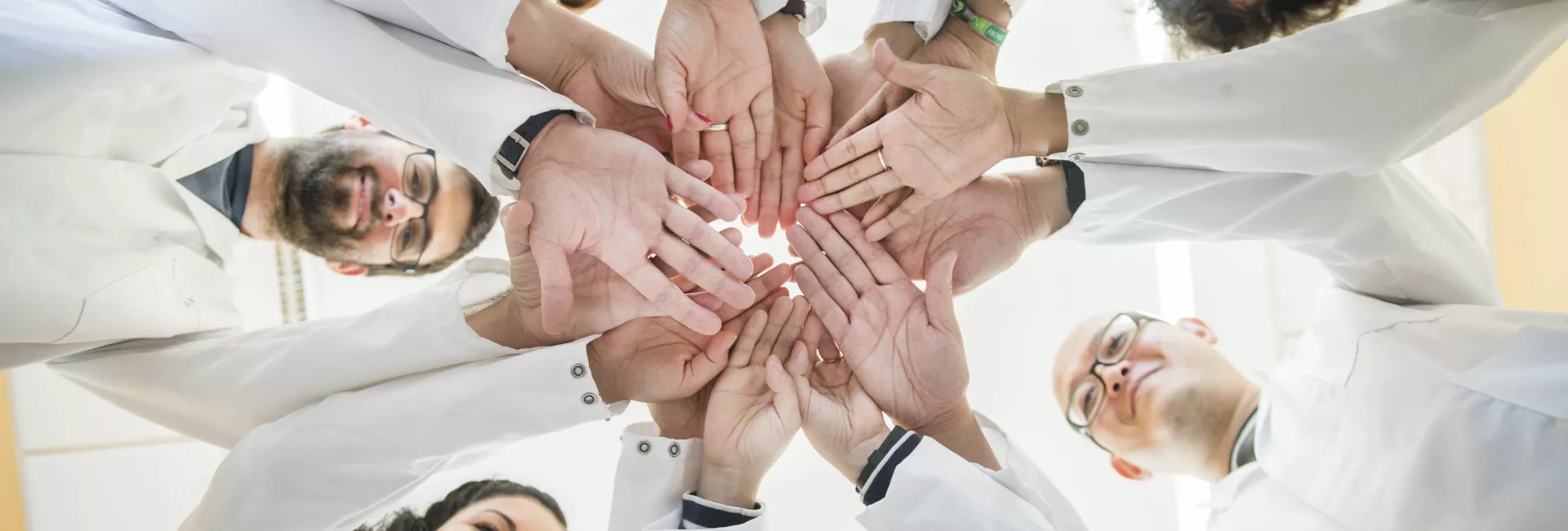Como parte de nuestra misión de promover una investigación excelente en un entorno multidisciplinar, adquirimos el compromiso de formar a científicos y maximizar el impacto de nuestra ciencia en la sociedad.
Coordinada por la Oficina Académica, con la colaboración de otros departamentos, la formación complementaria se centra en nuestros investigadores doctorales y posdoctorales. Sin embargo, también se implementan actividades de formación a toda la comunidad.
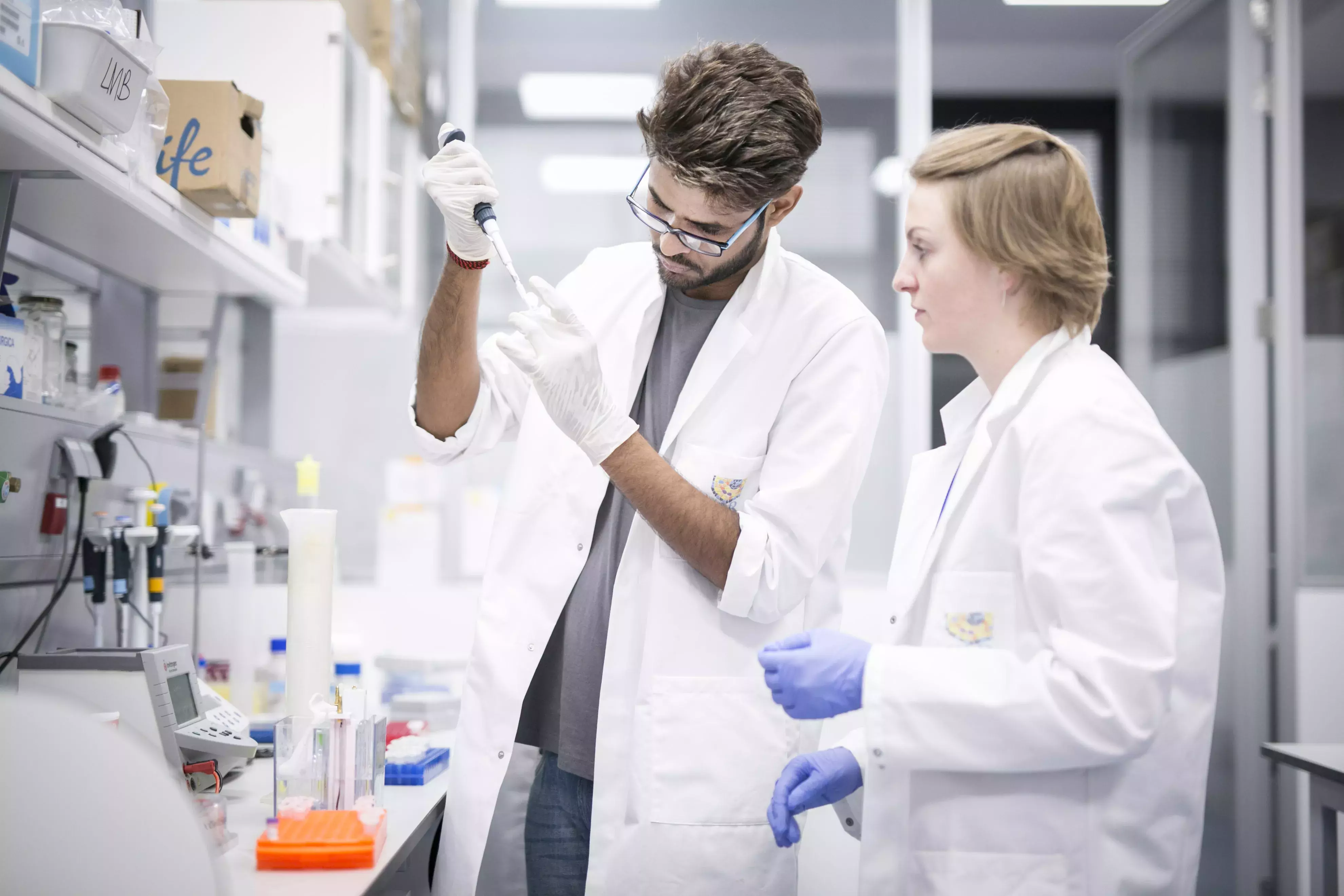
Actividades de formación
Ofrecemos una amplia gama de actividades de formación periódicas (cursos y talleres) más allá del laboratorio que pretenden desarrollar y fortalecer las competencias básicas complementarias necesarias para una carrera investigadora exitosa. Nuestro programa de formación trata principalmente de habilidades transferibles, pero también incluye cursos más técnicos. Las actividades formativas se dividen en las siguientes categorías:
1. Desarrollo profesional
Talleres para mejorar los conocimientos, habilidades y experiencia de los investigadores, lo cual les permitirá aprovechar su ciencia y abrir oportunidades profesionales más allá del ámbito académico.
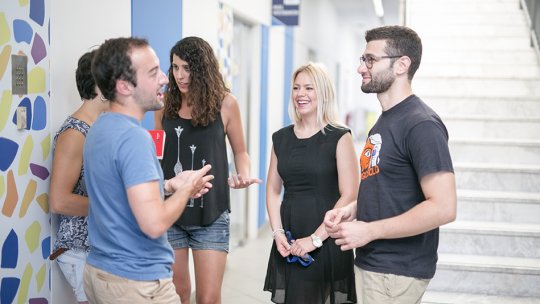
2. Innovación
El Departamento de Innovación del IRB Barcelona participa activamente en el diseño de actividades de formación relacionadas con la innovación (ya sea impartiéndolas o facilitando el contacto con expertos). La formación está diseñada para mejorar un amplio espectro de aptitudes tanto técnicas como interpersonales relacionadas con el emprendimiento y el desarrollo empresarial.
Esta sección incluye talleres y actividades formativas, que se dividen en cuatro categorías: transferencia de tecnología, emprendimiento, propuesta de valor e innovación.
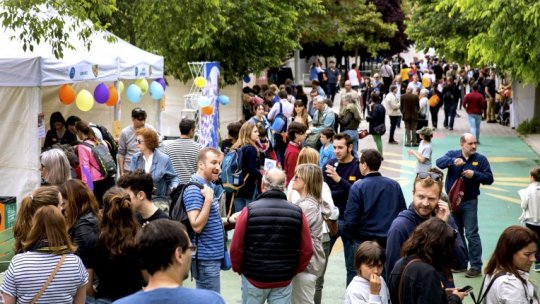
3. Comunicación
Los talleres sobre habilidades comunicativas tienen como objetivo ayudar a los investigadores a mejorar su comunicación oral/escrita no solo cuando se dirigen a un público científico, sino también al público en general.
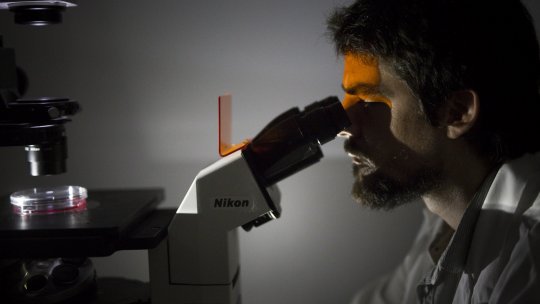
4. Formación científico-técnica
Los talleres de habilidades técnicas y científicas pretenden mejorar las habilidades y los conocimientos de los investigadores con respecto a técnicas específicas, conocimientos informáticos, etc.
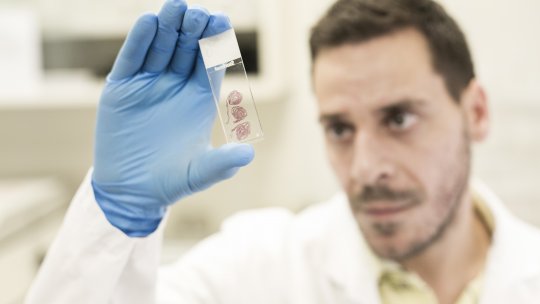
5. Desarrollo profesional personal
Cada investigador doctoral está supervisado por un comité asesor de tesis (TAC), formado por tres miembros. El TAC no solo pretende tutelar, supervisar y orientar al investigador en todos los aspectos relacionados con la tesis y el desarrollo profesional, sino también atender las preocupaciones individuales que puedan surgir.
Además, siguiendo los principios de la Carta Europea del Investigador, a partir de 2020 el IRB Barcelona está implementando un conjunto de medidas para reforzar el desarrollo profesional de forma personalizada. En este sentido, en 2019 varios miembros del Departamento de Recursos Humanos y Asuntos Académicos recibieron formación especializada como “asesores profesionales” y ahora están llevando a cabo planes de desarrollo profesional individualizados para investigadores doctorales, con lo cual los ayudan a identificar, adquirir o fortalecer habilidades que servirán para mejorar sus perspectivas laborales.
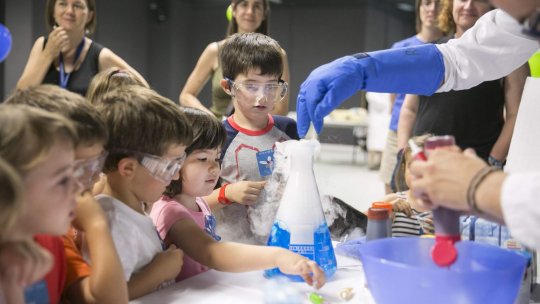
Programa de actividades
Enablecares Entrepreneurship “Online Closure Event”, participants from previous editions of the course from Barcelona, Nijmegen, Milan & Copenhagen are invited to come together to enhance the multi-site experience & put into practice the know-how and skill-set developed during the course in a “Business Case Workshop” led by expert entrepreneurial trainer Jeff Skinner. They will also get to hear first-hand experiences from four life-science entrepreneurs, one from each site.
#Enablecares
What can you do to make yourself a more effective doctoral researcher and get the most out of your PhD?
BIST centres by using the VITAE’s framework, have organised an interactive and intensive two-day course: “How to succeed in your PhD?”, which has been designed for you as first year doctoral researcher and will look at practical ways to increase your effectiveness and meet the challenges of your PhD.This round table embraces the philosophy of the ENABLECARES project regarding training in entrepreneurship & complementary skills for young researchers working in the life sciences.
#BCNHealthInnovationWeek
Entrepreneurship & innovation training course optimised for biomedical researchers is aligned with market demands and strategic policies. This course seeks to empower junior scientists by giving them the tools to explore their potential as entrepreneurs and their interest in pursuing careers in business or innovation management, thereby increasing their employability in academia and beyond.
The workshop will introduce participants to the field of experimental histopathology by reviewing the basic concepts of pathology (macroscopic and microscopic lesions/tissue evaluation), and the routine and specialised histological techniques used to obtain and process tissue samples. Notions of digital pathology, image acquisition and processing will be also covered.
Moreover, several examples of the applications of histopathological studies to biomedical research will be presented.
The session is addressed mainly to PhD researchers and users of the Histopathology Facility (previous registration requested).
Do you want to continue improving as a PreDoc researcher and excel at your PhD?
The course How to succeed in your PhD [II] for doctoral students has been exclusively designed by Kate Mahoney and the Barcelona Institute of Science and Technology (BIST) using VITAE’s framework. It will offer you the opportunity to focus on developing competences for successful self-management and development during the doctorate.
The Advanced Digital Microscopy Core Facility is organising a 11-hours course on Advanced Optical and Fluorescence Microscopy, including Image Analysis.
The first session will concentrate on the well-established methods of classical transgenesis and gene-targeting via embryonic stem cells, and will include examples of how to produce a range of mutation types; for example over-expression models, gene knock-outs and point mutations, both constitutive and conditional.
The second session will address more recent developments, such as the use of gene-editing nucleases, their advantages and limitations, and novel methods of gene transfer.
Managing projects with impact, excellence, and efficacy
In this course we will introduce the basic concepts, techniques and procedures of Project Management. We will learn the vocabulary and general guidelines and understand the process in its entirety.
This workshop led by Cecilia Gorriz (digital designer) will be focused on how to create and edit a scientific thesis with Adobe Indesign.
This workshop led by Cecilia Gorriz (digital designer) will be focused on how to create and edit scientific images with Adobe Photoshop and Adobe Illustrator.
If you are a young life scientist, SCI FI can give you the skills you need to thrive as an innovator in the healthcare industry.
A general introduction to the Python programming language, oriented towards Scientific Computing
The workshop will provide a general description of the unit, an introduction to basic statistical concepts, an overview of research integrity topics and research data management, and hands-on experience of bioinformatic tools available on the web.
Leading in strategy and culture in a research environment
The sessions will explore theories and test strategies that contribute to your individual leadership development. This is a practical and participative workshop. You will work in small groups to apply the theory to your individual leadership challenges and create a professional development plan to apply new approaches.
The course will cover a range of genomics and transcriptomics applications currently offered by the Functional Genomics Core Facility (FGCF). This year, we will pay special attention to the new field of spatial biology, as well as single cell transcriptomics and epigenomics.
What can you do to make yourself a more effective doctoral researcher and get the most out of your PhD?
BIST centres by using the VITAE’s framework, have organised an interactive and intensive two-day course: “How to succeed in your PhD?”, which has been designed for you as first year doctoral researcher and will look at practical ways to increase your effectiveness and meet the challenges of your PhD.Entrepreneurship & innovation training course optimized for biomedical researchers is aligned with market demands and strategic policies. This course seek to empower junior scientists by giving them the tools to explore their potential as entrepreneurs and their interest in pursuing careers in business or innovation management, thereby increasing their employability in academia or beyond.
In this webinar we will share methodologies and systems to be productive while maintaining a good balance between professional and personal needs.
